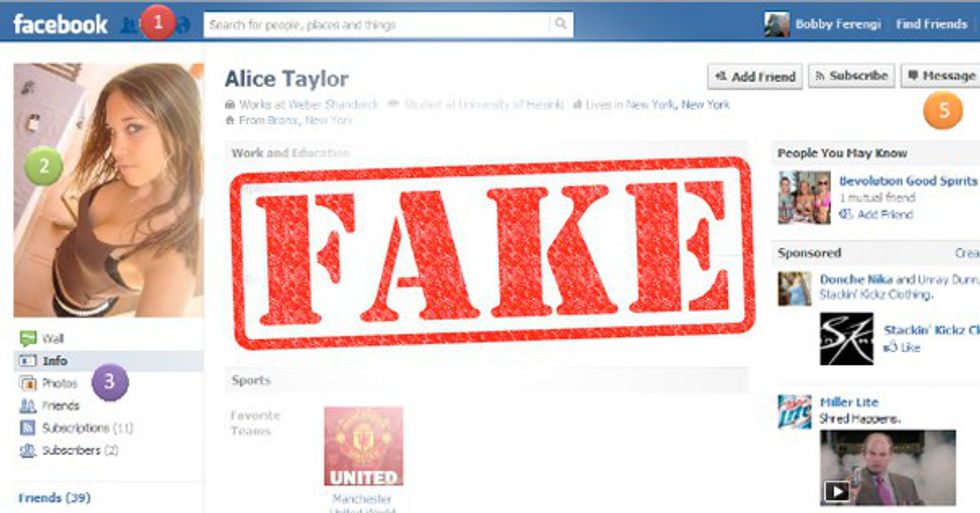Whether you are updating your status on Facebook, scrolling through your Twitter feed, checking your Instagram or Pinterest account or updating your Tumblr, it is pretty safe to say that social media is quite popular in today's world. The purpose of social media is to connect with others, stay in contact with your friends and family, network and potentially meet new people. However, have you ever stopped to think that maybe some of these people shooting you friend requests throughout the day or requesting to follow you are not actually real people?
Recently, Facebook has been in the news because it was reported that user profiles are being cloned and used to scam others. You may be wondering how exactly. Well, the scammer gains information about you, typically by looking through the "About" section on your profile or even by public posts you may have shared. They will then use your profile picture(s) and pose as you, to possibly target those who are on your friend's list. The scammer may message your current Facebook friends in an attempt to learn more information about you, try and borrow money or even request to meet up with them.
People are being warned that if you receive a friend request from somebody you believe you are already friends with, move forward with caution. It could be a cloned profile, and if that is the case, then you should not click "accept." In addition to that, if you receive a request from someone you think you recognize, be very careful, because he or she could be a scammer, also.
Elizabeth Holtan, a social media marketing consultant for the Council of Better Business Bureaus, explained her run-in with a Facebook scammer in 2015. She received a request from a relative of hers, and she was a little thrown off because she was pretty sure she was already Facebook friends with this person. But, she assumed what most people would: maybe it was a new account and the old one was deleted.
Holtan went ahead and accepted the request, and soon realized that it was a scammer due to the fact that they sent her a generic message (full of misspelled words and poor grammar) about a company rewarding her with $200,000 and suggesting that she look into it. Holtan suggests that in order to avoid Facebook scammers, one should double-check friend requests, avoid blindly trusting Facebook friend's recommendations and watch for poor grammar. Alert your friends if you see suspicious activity and report fake profiles to the Facebook Support Center immediately.
Fake profiles probably do not come as much surprise to today's Facebook users, because it is quite common. Some profiles make it pretty obvious they are not really who they say they are. For example, they will have only one profile picture, no recent status updates and the two of you may not even have any mutual friends. Those are major red flags. However, Facebook scammers are becoming more and more clever and are becoming harder to spot.
It is advised that you check your privacy settings and make sure you are aware of what information you have available to the public and what information you have set to where only your eyes can see it. Also, you may not want your friend's list to be public, because scammers are using this to their advantage. It is recommended that you change this setting as well to "Friends," instead of "Public," just to be on the safe side.
Be cautious with your social media profiles, and report any suspicious activity you may come across. You never know when and if someone is planning on stealing your identity on Facebook. Better safe than sorry.
























